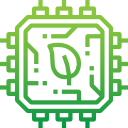
Eco-Friendly Smart Home Automation Systems
Eco-friendly smart home automation systems combine advanced technology with sustainable living principles, offering homeowners intelligent ways to reduce energy consumption while enhancing comfort and convenience. These systems not only help minimize environmental impact through efficient resource management but also ensure long-term cost savings. Powered by innovations in automation, smart devices, and connectivity, eco-friendly automation solutions are increasingly accessible for homes of all sizes. As households strive to become more sustainable, integrating smart automation into daily life serves as a practical and effective step toward a greener future.
Sustainable Energy Management
Automated Energy Monitoring
Automated energy monitoring uses connected sensors and devices to track electricity use in real-time. By offering live feedback on consumption patterns for various appliances and systems, homeowners gain greater awareness of where and how energy is being used. This information is crucial for identifying wasteful practices—such as leaving lights or devices on when not needed—and implementing corrective measures. Over time, these systems provide detailed reports and insights, empowering users to make adjustments that lead to ongoing energy savings while fostering a genuine commitment to sustainability.
Intelligent Lighting Control
Intelligent lighting control systems play a pivotal role in sustainable energy management. Using smart switches, dimmers, and motion sensors, these systems automatically adjust brightness levels or turn off lights in unoccupied areas. Schedules and automation routines ensure that artificial lighting is used only when necessary, while daylight sensors capitalize on natural light. The result is a significant reduction in unnecessary electricity usage and the extension of bulb life spans. By controlling lighting with precision, smart homes not only conserve energy but also create more comfortable and responsive living environments.
Smart Thermostat Optimization
Smart thermostats contribute to eco-friendly energy management by learning household routines and automatically adjusting heating and cooling settings. These devices optimize temperature control based on occupancy and desired comfort levels while considering weather patterns and energy rates. Over time, smart thermostats help maintain optimal indoor environments with minimal energy consumption. By preventing excessive heating or cooling, they reduce utility costs and environmental harm. Their ability to be controlled remotely via mobile apps further enables users to manage energy use even when away from home.


Leak Detection and Prevention
Smart leak detection systems safeguard homes against costly water waste and structural damage by providing real-time alerts when leaks or irregularities are detected. These devices, often installed in vulnerable areas such as basements, kitchens, or bathrooms, use advanced sensors to monitor water flow and pressure. If a leak occurs, the system can automatically shut off the water supply or notify homeowners through alerts on their smartphones. This proactive approach not only reduces waste but also helps prevent mold growth or water damage, contributing to more sustainable and cost-effective home maintenance.

Smart Irrigation Controls
Smart irrigation systems revolutionize outdoor water management by using weather data, soil moisture levels, and landscape requirements to determine optimal watering times and amounts. Unlike traditional sprinklers that may overwater or run during rainfall, these systems actively avoid unnecessary usage by adapting their schedules to real-time environmental conditions. Homeowners can monitor and control irrigation settings remotely, ensuring that lawns and gardens thrive while using water efficiently. By reducing overwatering and runoff, smart irrigation contributes to healthier landscapes and a significant reduction in water consumption.

Efficient Appliance Integration
Modern homes often feature appliances designed to use water efficiently, but smart automation takes this a step further by integrating usage data and automation capabilities. Connected dishwashers, washing machines, and faucets can adjust cycles or flow rates based on load size or water hardness. Through smart scheduling and remote management, these appliances operate at times of low demand or optimal water availability, minimizing overall consumption. Intelligent integration ensures that every drop is used wisely, supporting conservation without compromising on household needs or hygiene standards.
Previous
Next
Renewable Energy Integration
Advanced smart home systems can seamlessly integrate with solar panel arrays, optimizing the collection and distribution of solar energy throughout the home. Automated inverters and controllers monitor energy production in real time, directing power where it is needed most or storing excess in home batteries. These management tools also provide homeowners with insights on peak generation times, helping them to schedule high-demand tasks—like running appliances or charging electric vehicles—during periods of maximum efficiency. The result is a home energy ecosystem that relies more on renewable power and less on fossil fuels.
Join our mailing list
